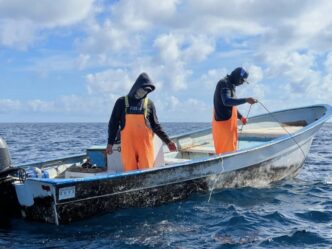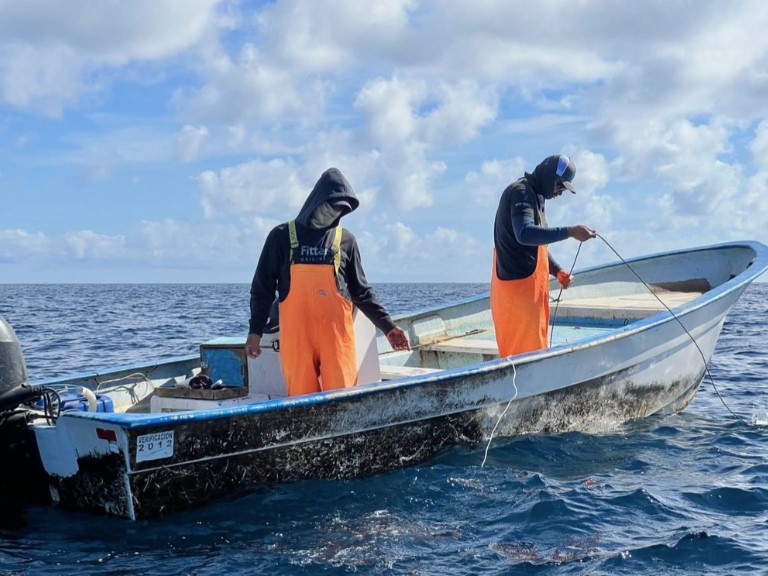Agua Amarga, a coastal village in Baja California Sur near La Paz, is best known for its raw beauty and the vibrant turquoise waters of Bahía Turquesa. Located about 50 minutes from the city and 13 kilometers past Los Planes, this region has long been sustained by shark fishing, a tradition passed down for generations.
But that tradition is changing. In response to declining shark populations caused by overfishing and industrial trawling, a group of local fishermen has begun shifting to conservation-based tourism. Backed by Orgcas, a marine conservation nonprofit supporting coastal communities, they’ve formed a tourism cooperative aimed at easing fishing pressure and protecting marine life.
Among them is Félix Rochín, 32, a former fisherman turned ecotourism guide. Though he hasn’t fished in three years, his connection to the sea runs deep. Now, alongside fellow fishermen, Rochín helps patrol areas like the Bay of the Dead and Cerralvo Island, once hotspots for shark fishing.
Their roots run deep. One of the founding fishermen, Luciano, navigated the sea in wooden sailboats. His legacy lives on in his descendants, including Joel Lucero, who has transitioned partially from fishing to tourism.
Decades of industrial and illegal fishing have taken a toll on the local ecosystem. Shark specialist Frida Lara warns that the same activities endangering sharks also threaten the community’s way of life.
As shark populations reach critical limits, fishermen like Lucero and Rochín are finding new opportunities in tourism. With seasonal work, they now split their time between traditional fishing and hosting visitors, contributing to marine conservation while supplementing their income.
Despite a crowded tourism market, their deep seafaring knowledge gives them an edge, offering tourists an immersive experience rich in history and storytelling.
The Tiburón Project, central to this initiative, aims to offset the economic losses of reduced shark fishing with gains from ecotourism. Lucero has already cut his shark fishing by 20 percent; Rochín has shifted entirely to tourism.
Orgcas continues its scientific efforts to monitor the marine environment and support conservation strategies, a collaboration showing that economic resilience and environmental stewardship can go hand in hand.
Agua Amarga’s transformation reflects a growing movement to protect marine ecosystems while preserving the livelihoods built upon them.




